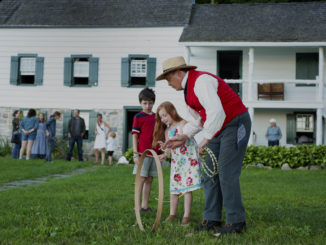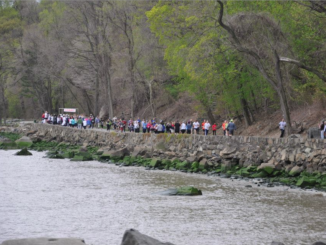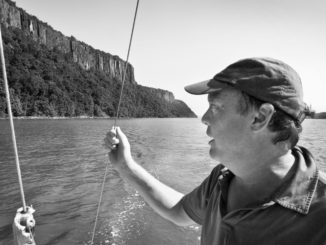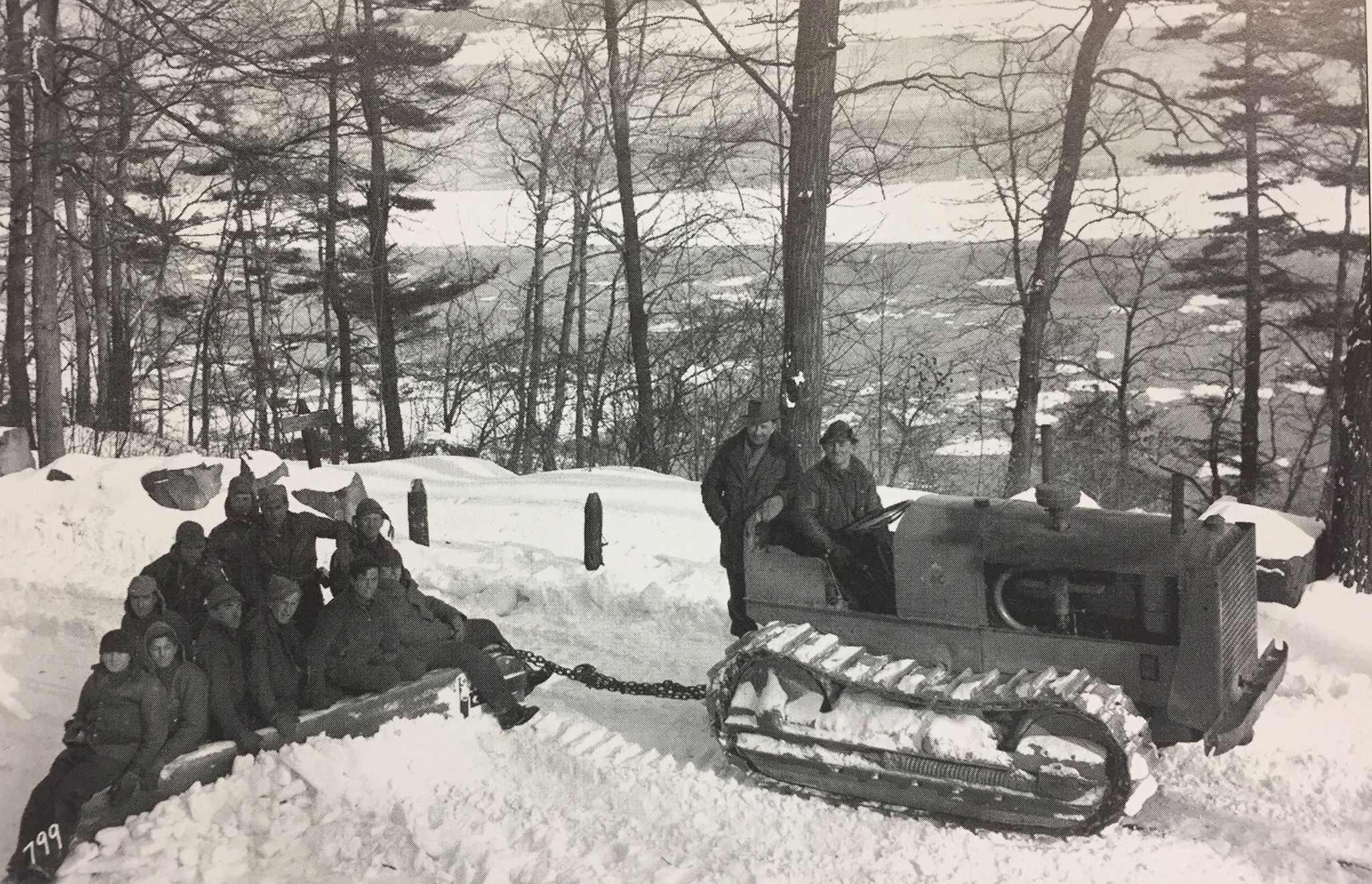
President Franklin Delano Roosevelt’s New Deal, a federal work relief program, provided manual labor jobs to millions of unemployed men in the wake of the Great Depression. One beneficiary of these labors was the Palisades Interstate Park.
Throughout the 1930s, men hired under federal programs such as the Civilian Conservation Corps (CCC) and Civil Works Administration (CWA) tackled projects like tearing down the old clifftop mansions, laying the Palisades Interstate Parkway, creating park outbuildings such as restrooms, installing stone parapets and retaining walls along the roadways, and building the stone stairways that can be found ascending the cliffs in sometimes remote locations. The fruits of their labors are still enjoyed by parkgoers today.
In the photo above, CCC boys have a little fun while plowing Henry Hudson Drive in the Palisades Interstate Park this week 85 years ago. The photo was snapped Jan. 27, 1934.
The CCC was composed mostly of men aged 18 to 25—although some apparently lied about their age to get into the program for the benefit of their family. The CCC concentrated on public works projects and was created in an effort to employee young men while at the same time improving the country’s infrastructure.
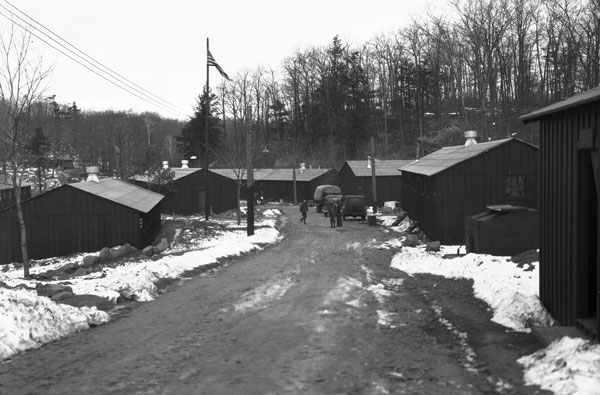
The “boys”—as they were called—received room and board, being housed in military-like barracks close to the work sites. A CCC camp was located atop the cliffs in Tenafly at the area now called the Greenbrook Sanctuary.
The young men enlisted in the CCC for a period of six months and received a salary of about $30 per month (roughly a dollar a day), about $25 of which they sent home to their families.
In his 2006 article “Into the Woods: The First Year of the Civilian Conservation Corps” for the U.S. National Archives and Records Administration, author Joseph M. Speakman wrote the following of the young men of the CCC: “They opted for long days and hard, dirty work, living in quasi-military camps often far from home in the nation’s publicly owned forests and parks. But they earned money to send back to their needy families, received three square meals a day, and escaped from idle purposelessness by contributing to the renewal and beautification of the country.”
—Kristin Beuscher

